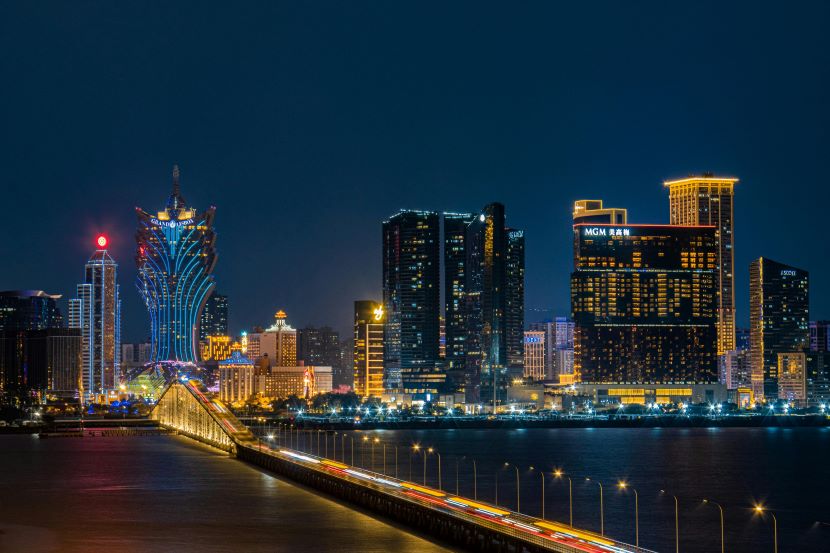Published on October 3, 2025
The gaming industry in Macau is gaining significant momentum, described by analysts as the territory’s strongest growth phase since the pandemic. As financial restrictions loosen and traveler confidence improves, the world’s largest casino hub is entering a pivotal transformation period. However, this resurgence occurs amidst rising competition from emerging Asian gaming markets, presenting both vast opportunities and considerable challenges for the six dominant operators.
Liquidity Driving Growth
Historically, the flow of funds for high-end gaming in Macau has faced numerous obstacles, deterring affluent players and limiting necessary revenue growth. Recently, a notable easing of these restrictions has emerged, paving the way for recovery. Seaport Research Partners highlights that this change is crucial for Macau’s increase in gaming revenue.
The positive effects are most pronounced in the premium mass category, where improved visa processing and increased capital influx have welcomed back high-net-worth players. As of September 2025, gross gaming revenue has rebounded to 82% of pre-pandemic levels, with a year-on-year growth of 7.1 percent. Notably:
- Mass gaming revenue has exceeded 2019 levels, reaching 118%.
- Premium mass play has increased by over 40% compared to pre-pandemic figures.
- VIP gaming remains at 28% of 2019 levels but is on a gradual upward path.
Tourism Recovery Gains Pace
Tourism is a key driver in this growth phase, with visitor numbers in 2025 expected to approach 39 million, nearing pre-pandemic figures. Following a strong rebound in 2024, when 34.9 million arrivals reflected an 88.6% recovery from 2019.
Not only is the volume of tourists increasing, but their engagement is also improving. Overnight stays are projected to reach 16.4 million in 2025, with expectations rising to 21.9 million by 2030, indicating deeper connections with Macau that extend beyond gaming. Visitor spending trends support this diversification:
- Projected expenditure per visitor will reach MOP2,194 in 2025, with total non-gaming spending estimated at MOP85.5 billion.
- By 2030, per-capita spending may increase to MOP3,229, bringing non-gaming revenues above MOP110 billion.
Shifts Among Major Operators
Within Macau’s competitive framework of six licensed operators, recent market share analysis demonstrates shifts in industry dynamics. According to Citigroup’s findings:
- MGM China is forecasted to gain nearly one percentage point, holding 16.8% market share.
- Galaxy Entertainment is expected a rise of 0.6 percentage points to around 20.3%.
Regional Competition Intensifies
Macau’s recovery is part of a larger trend across Asia, where various jurisdictions are actively launching their own casino and integrated resort initiatives, fostering a competitive environment:
- The Philippines is set to see gaming revenue reach 336 billion pesos in 2025, boosted by new resort projects.
- Singapore maintains an advantage with Marina Bay Sands, supported by an extensive expansion plan.
- Japan is entering the scene with MGM Osaka, a multi-billion dollar project expected to break ground soon.
- Thailand has postponed casino legalization efforts, yet there are hopes for future initiatives.
- Vietnam looks to expand its casino pilot program, possibly introducing integrated resorts for local visitors.
Future Outlook for Macau
Looking ahead, industry predictions indicate around 7 percent annual growth through 2026 and 2027, driven by robust tourism and improved financial flow. However, growing competition across Asia poses challenges to Macau’s dominance. The reliance on Chinese visitors creates risks as other destinations target the same clientele. To thrive, Macau’s focus on diversification is crucial.
The “Tourism+” strategy broadens Macau’s appeal, incorporating areas like gastronomy, culture, health, and family entertainment. Casino operators are aligning with this model, investing in non-gaming experiences. Future resilience will also depend on embracing technological advancements and sustainability practices. Macau enters this travel phase with significant advantages, but its future prosperity will depend on balancing growth with competition management.



